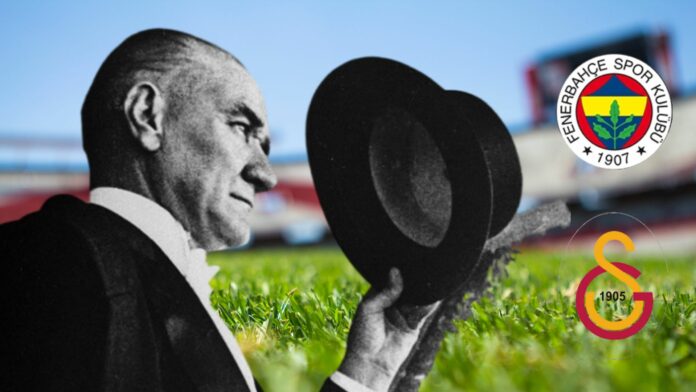A symbol of secularism and free speech, it comes as no surprise that Atatürk was, and remains, a thorn in the side of the Saudi kingdom.
by Damla Pesek
In a surprising turn of events, the Turkish Super Cup final match, scheduled to take place on the 29th of December in Riyadh, Saudi Arabia was abruptly cancelled. Why? The host country refused to allow any mention or depiction of Mustafa Kemal Atatürk, the revered founder of the Turkish Republic, during the match. This decision led both Galatasaray and Fenerbahçe, two prominent Turkish Super League teams, to boycott the match. When the defining values of the Turkish nation were challenged, differences faded away.
Mustafa Kemal Atatürk is not a political figure; he is the driving force behind the establishment of the modern Turkish state. As the founder of the Republic of Turkey in 1923, Atatürk implemented a series of sweeping reforms to transform Turkey into a secular and modern nation. His vision and leadership were instrumental in shaping Turkey’s identity, making him a figure revered by people beyond the political spectrum. The Saudi Arabian authorities’ refusal to allow the display of Atatürk’s quotes and images sparked outrage among the Turkish teams and their supporters. Fenerbahçe’s chair, Ali Koç, revealed that the Saudi officials confiscated a banner featuring Atatürk’s renowned phrase, “Peace at home, peace in the world.” Koç came to the meeting upon request and left the room in anger after saying: “What do you mean there is no Atatürk? If there is no Atatürk, there is no Turkey, there is no us, there is no match.” Both teams decided not to play the match, emphasizing their unwavering commitment to principles that go beyond the boundaries of sports.
The timing of this incident is significant as it coincides with the centennial celebrations of the Republic of Turkey. Atatürk’s profound impact on the nation is highlighted by the fact that both Galatasaray and Fenerbahçe, two football giants, were willing to forfeit a major sporting event in defense of his legacy. For the Turks, the attempted censorship of Atatürk’s quotes and images was unacceptable. Social media users, sports commentators, and opposition politicians expressed support for the teams, emphasizing their collective commitment to upholding Atatürk’s legacy.
So where was President Recep Tayyip Erdoğan in this scenario? The decision not to play the match was entirely in the hands of Fenerbahçe and Galatasaray sports clubs. While President Erdoğan remained silent that day regarding the “Super Cup crisis » in Saudi Arabia, he commented on what happened a day later.
Erdogan accused the opposition in Turkey, which criticized the events in Riyadh and the Saudi officials, of “being a voluntary figurehead for the extremely dangerous politics of hate.” After he referred to Saudi Arabia as “one of our country’s most important commercial partners and a brother country”, thousands of citizens of the Republic of Turkey reacted to his statements.
The cancellation of the Turkish Super Cup final in Saudi Arabia serves as a poignant reminder that Mustafa Kemal Atatürk is not confined to the pages of history or the realm of politics. Evidently his influence still transcends these boundaries, as a figure who embodies the spirit and identity of Turkey. The stand taken by both Galatasaray and Fenerbahçe teams against the censorship in Riyadh underscores the Atatürk’s enduring legacy as a national hero whose ideals continue to unite the Turkish people.



